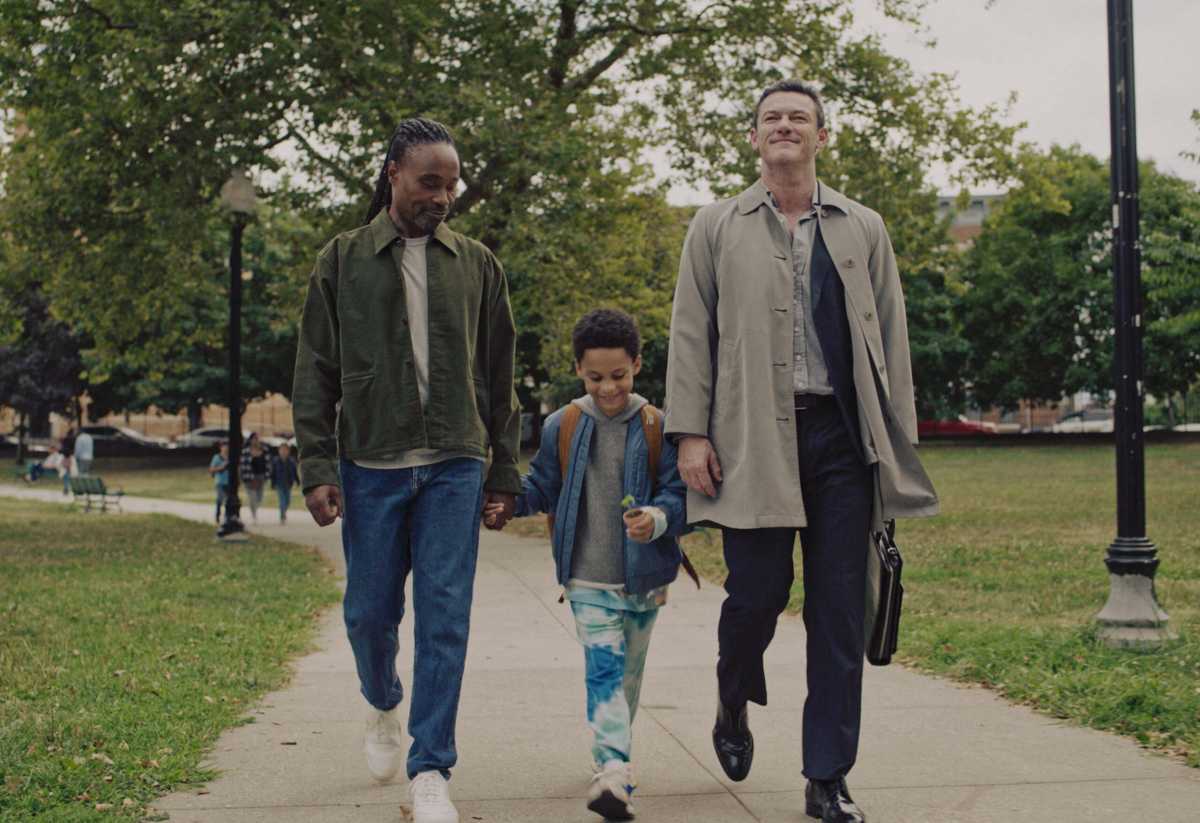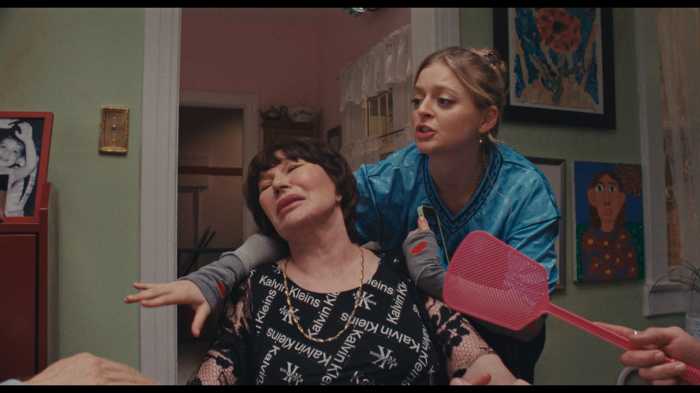In the thoughtful, touching drama, “Our Son,” New York couple Nicky (Luke Evans) and Gabriel (Billy Porter) have been together 13 years and have raised their son Owen (Christopher Woodley) for 8 of them. However, Gabriel has long been unhappy in their marriage and decides to break up their family, which devastates Nicky. Moreover, the issue of who should take primary care of Owen quickly escalates into a battle of wills and lawyers.
Nicky may be the biological father and the breadwinner, but Gabriel sacrificed his career to parent their child. As things get nasty between the men, they soon determine what they are willing to fight for — and give up — to provide the best care for Owen.
Out gay director/cowriter Bill Oliver never allows “Our Son” to get maudlin, and both Evans and Porter give strong performances as gay men who must reevaluate their lives and relationships in light of their breakup.
Oliver, Porter, and Evans spoke with Gay City News about their emotional film, “Our Son.”
Bill, can you talk about making a film about gay divorce? Why address this issue after the long fight for marriage equality?
Bill Oliver: With the right to marry comes the right to divorce. My writing partner (Peter Nickowitz) and I were looking for a queer story to tell. The idea of divorce was exciting because we had not seen that before. And it felt progressive to move beyond coming out stories, first love stories, tragedies, and [depict] something a lot of people go through every day. It allowed us to explore what family means to queer people, and to celebrate our flaws and our failures as well as our successes. I have two sons that I coparent with a lesbian couple, so it was a personal way for me to explore fatherhood. This film is as much about that as divorce, really.
The film is very much about communication and listening. The arguments between Nicky and Gabriel express things they really have not told each other. What are your thoughts on the couple’s dynamic, and how did you work at creating it?
Billy Porter: I think the number one complexity of all relationships is communication styles and communication period. People talk about love languages, and if our love languages are different, and we don’t understand what they are, or what the difference is, then the communication breaks down or it doesn’t exist at all. In this situation, once Owen was born, it was hard for Gabriel to communicate with Nicky about what he was feeling. Because I don’t think Gabriel knew how to name it. You can’t heal from a thing unless you can name it. Gabriel’s journey has him finding the courage to start naming it out loud. Once the first thing was named, then the next thing was named, and the next. It helped him get to healing for himself. It’s very powerful to me. There is no good time for something like that.
Luke Evans: I feel Nicky has not been listening, not just verbally, but not listening to the dynamic within the relationship until it’s too late. What is sad is his efforts come after Gabriel has made the decision for them. There is no going back. We have to go through the process with lawyers. Nicky feels “I’ve listened too late.” Nicky ends up listening to and understanding his son for the first time. He learns a love language with his son. Which allows Nicky to grow as a human being. He spends time with his son without Gabriel carrying them both through a moment. He may have lost his communication with Gabriel, but there is a new communication with his child, which is beautiful to see. He has to relinquish ownership of his son, and you see these two people thrashing it out alone, together, in a courtroom, with their families and with their friends. It is very touching to see how these two people find their way through this horrific painful moment in their lives and how they think about and consider this child.
There is an interesting throughline in the film about fathers. Both Gabriel and Nicky talk about their fathers. What observations do you have about fatherhood?
Bill Oliver: The theme of fatherhood was important because it was universal, but it has a particular resonance for queer men who often don’t have great relationships with their biological fathers. People of our age lost a generation of surrogate fathers to AIDS. With gay men trying to become fathers to children, it has to be very intentional, and we wanted to get that process in there, too. What actually has to happen to have a biological child? We are hearing that gay people should not have children. We also have to tune out those voices that say, “Should I have children?” and “Do I deserve this?” That is part of the subtext for Nicky’s character.
Billy Porter: I don’t want children personally, but I have many gay friends who do. It’s interesting and beautiful to watch them with their children because I can see their healing in real time from whatever their relationship is with their other father. They are changing the dynamic and breaking that generational cycle. It is not just black people. It’s everybody.
“Our Son” | Directed by Bill Oliver | On VOD December 15 | Distributed by Vertical.





































